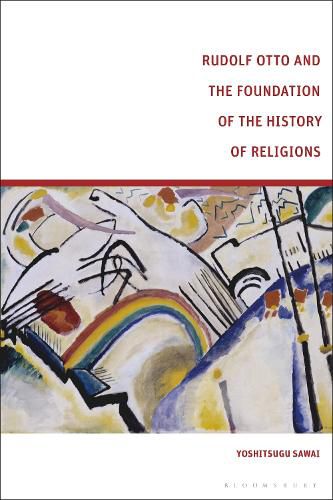Readings Newsletter
Become a Readings Member to make your shopping experience even easier.
Sign in or sign up for free!
You’re not far away from qualifying for FREE standard shipping within Australia
You’ve qualified for FREE standard shipping within Australia
The cart is loading…






This book provides an up-to-date treatment of Rudolf Otto and his work, placing him in the context of comparative religion, theology, and the philosophy of religion.
Yoshitsugu Sawai shows how Otto has "three faces": the Lutheran Theologian, the Philosopher of Religion, and the Comparative Religionist. The book also shows how, of these, Otto saw himself primarily as a Lutheran Theologian, and provides an account of Otto's engagement with India and the centrality that Hindu theology had on his thinking. In Otto's theory of religion, his well-known concepts including "wholly other" and "numinous" constitute a multiple structure of meaning. For example, his concept of the "wholly other" (das ganz Andere) no doubt has the meaning of "God" in his Christian theological studies. At the same time, however, from the perspective of comparative religion or the phenomenology of religion, this same term semantically implies the "ultimate reality" of other religious traditions; "Brahman" and "God" (Isvara) in Hindu religious tradition as well as "God" in Christianity.
$9.00 standard shipping within Australia
FREE standard shipping within Australia for orders over $100.00
Express & International shipping calculated at checkout
This book provides an up-to-date treatment of Rudolf Otto and his work, placing him in the context of comparative religion, theology, and the philosophy of religion.
Yoshitsugu Sawai shows how Otto has "three faces": the Lutheran Theologian, the Philosopher of Religion, and the Comparative Religionist. The book also shows how, of these, Otto saw himself primarily as a Lutheran Theologian, and provides an account of Otto's engagement with India and the centrality that Hindu theology had on his thinking. In Otto's theory of religion, his well-known concepts including "wholly other" and "numinous" constitute a multiple structure of meaning. For example, his concept of the "wholly other" (das ganz Andere) no doubt has the meaning of "God" in his Christian theological studies. At the same time, however, from the perspective of comparative religion or the phenomenology of religion, this same term semantically implies the "ultimate reality" of other religious traditions; "Brahman" and "God" (Isvara) in Hindu religious tradition as well as "God" in Christianity.